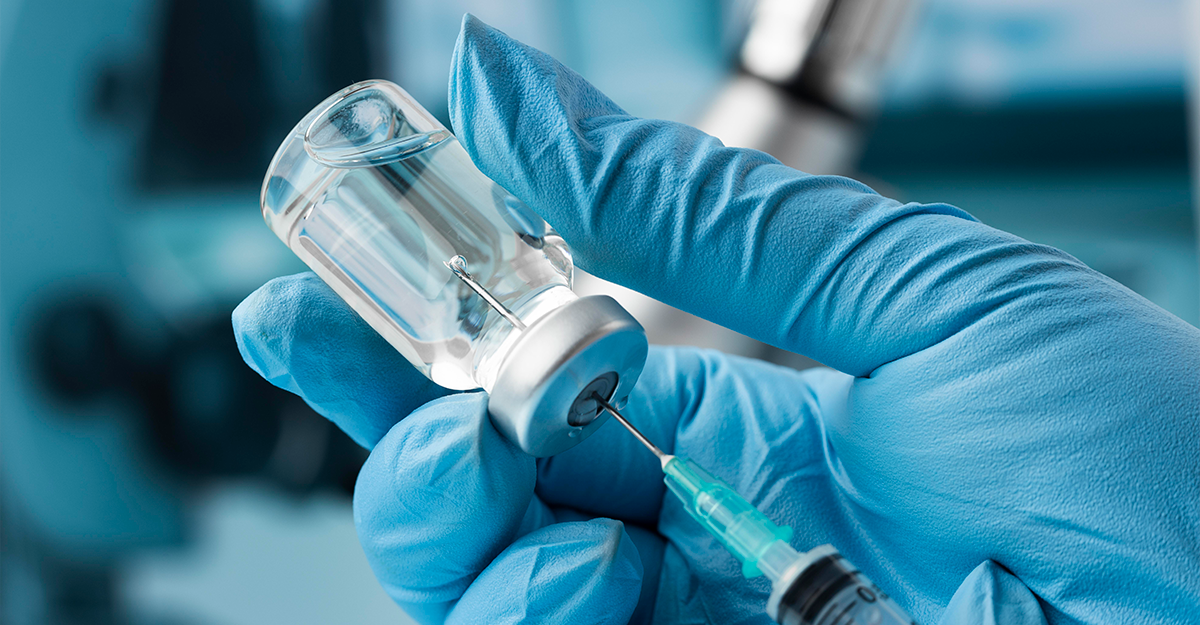Anúncios
The discovery of penicillin marked a turning point in the history of modern medicine. Its effective action against bacterial infections revolutionized healthcare. Since then, millions of lives have been saved through its clinical use.
In addition to its direct impact on disease treatment, penicillin paved the way for the development of new antibiotics. This scientific revolution transformed medical and pharmaceutical research. Today, its legacy still influences therapeutic innovation.
Anúncios
How Penicillin Works in the Treatment of Bacterial Infections
Penicillin, the first true antibiotic discovered, fundamentally transformed the landscape of modern medicine. It works by targeting the bacterial cell wall, which is essential for the survival of bacteria. When penicillin enters the bacterial cell, it inhibits the synthesis of peptidoglycan, a crucial component of the cell wall. This leads to the weakening of the cell wall and eventually causes the rupture and death of the bacteria, a process known as lysis. This mechanism is particularly effective against Gram-positive bacteria, which have a thick layer of peptidoglycan, making them highly susceptible to the action of penicillin.
The effectiveness of penicillin against bacterial infections can be attributed to its selective toxicity. Unlike human cells, bacterial cells have a cell wall, allowing penicillin to attack the bacteria without harming human cells. This property makes penicillin a safe and effective treatment option for various bacterial infections, including pneumonia, syphilis, and streptococcal pharyngitis. As a result, penicillin has become a cornerstone in the treatment of infectious diseases, significantly reducing morbidity and mortality rates associated with bacterial infections.
Furthermore, the discovery of penicillin paved the way for the development of other antibiotics. After its introduction, researchers began to explore the potential of various fungi and bacteria to produce antibiotic substances. This led to the discovery of a wide range of antibiotics, each with unique mechanisms of action and spectrums of activity. The knowledge gained about how penicillin works was fundamental to the development of new antibacterial agents, enabling more targeted and effective treatments.
In clinical practice, penicillin is typically administered in various forms, including oral tablets, injectable solutions, and intravenous formulations. The choice of administration depends on the severity of the infection and the patient’s overall health. Despite the emergence of antibiotic resistance, penicillin remains a vital tool in the medical arsenal, demonstrating its enduring relevance in the fight against bacterial infections.
Advantages of the Discovery of Penicillin in Modern Medicine

The discovery of penicillin had profound implications for modern medicine, fundamentally altering the approach to treating bacterial infections. One of the most significant advantages is the dramatic reduction in mortality rates associated with bacterial diseases. Before penicillin, common infections could lead to severe complications or death. The introduction of this antibiotic saved countless lives and transformed the prognosis for patients with bacterial infections.
Another advantage of penicillin is its broad spectrum of activity against various bacterial pathogens. It has been effective in treating a wide range of infections, from minor skin infections to potentially fatal diseases like meningitis. This versatility made penicillin an essential component of antibiotic therapy, allowing healthcare professionals to treat infections effectively and quickly. Additionally, the development of penicillin derivatives expanded its effectiveness against resistant bacterial strains, further increasing its utility in clinical settings.
The discovery of penicillin also encouraged advances in pharmaceutical research and development. It motivated scientists to explore other natural sources of antibiotics, leading to the discovery of new antibiotic classes and the development of synthetic alternatives. This antibiotic revolution not only enriched the pharmaceutical landscape but also promoted a greater understanding of microbial resistance mechanisms, paving the way for innovative approaches in the fight against antibiotic resistance.
Moreover, the impact of penicillin goes beyond individual patient care. Its discovery influenced public health initiatives, leading to improvements in infection control measures and vaccination programs. The ability to effectively treat bacterial infections enabled safer surgical procedures and organ transplants, contributing to advances in medical technology and patient care. Overall, the advantages of penicillin are far-reaching, underscoring its importance in modern medicine.
How the Discovery of Penicillin Transformed Healthcare
The discovery of penicillin marked a pivotal moment in the history of healthcare, revolutionizing the way bacterial infections are managed. Understanding Alexander Fleming’s role in the discovery of penicillin is crucial to appreciating its impact. In 1928, Fleming accidentally discovered that the fungus Penicillium notatum produced a substance that inhibited bacterial growth. This groundbreaking discovery laid the foundation for the development of penicillin as a therapeutic agent, leading to its widespread use in the following decades.
The impact of penicillin on the treatment of bacterial infections cannot be overstated. Before its introduction, many bacterial infections were often fatal, and treatment options were limited. With the arrival of penicillin, healthcare professionals gained a powerful tool to combat infections, leading to a significant drop in mortality rates. The ability to treat previously untreatable infections transformed the medical landscape, allowing for more aggressive treatment approaches and better outcomes for patients.
The antibiotic revolution triggered by the discovery of penicillin has had profound importance in modern medicine. It led to the development of numerous antibiotics, each targeting specific bacterial pathogens. This diversification of antibiotic therapy allowed healthcare professionals to tailor treatments to individual patients, increasing the effectiveness of care. Additionally, the rise in antibiotic research fostered a deeper understanding of microbial resistance, leading to ongoing efforts to develop new antibiotics and alternative therapies.
The pharmaceutical advances resulting from penicillin research have also had a lasting impact on health. The methods developed for the production and purification of penicillin laid the groundwork for large-scale antibiotic manufacturing. This made antibiotics widely available and accessible, ensuring that patients around the world could receive effective treatment for bacterial infections. As a result, the discovery of penicillin not only transformed individual patient care but also shaped the trajectory of public health and medical practice.
Understanding Alexander Fleming’s role in the discovery of penicillin: The accidental discovery of penicillin in 1928 marked the beginning of the antibiotic era, highlighting the importance of scientific curiosity and observation in advancing medical knowledge.
The impact of penicillin on the treatment of bacterial infections: Penicillin revolutionized the treatment of bacterial infections, significantly reducing mortality rates and transforming the prognosis for patients with previously untreatable diseases.
The antibiotic revolution and its importance in modern medicine: The discovery of penicillin triggered an antibiotic revolution, leading to the development of a wide range of antibiotics, enhancing the ability to combat bacterial infections effectively.
How pharmaceutical advances resulted from penicillin research: The methods developed for the production and purification of penicillin laid the foundation for large-scale antibiotic manufacturing, making effective treatments widely available.
The connection between germ theory and antibiotic efficacy: The acceptance of germ theory provided a scientific basis for understanding infection mechanisms, paving the way for the development of antibiotics as a targeted treatment approach.
The ongoing influence of penicillin on health innovation: The discovery of penicillin continues to inspire research and innovation in antibiotic development, shaping the future of infectious disease management and public health initiatives.
The ongoing influence of penicillin on health innovation is evident in continuous research efforts aimed at combating antibiotic resistance and developing new therapeutic agents. The lessons learned from the discovery and subsequent use of penicillin have informed the development of strategies to preserve antibiotic effectiveness and promote responsible use. As healthcare faces new challenges in managing infectious diseases, the legacy of penicillin remains a guiding force in the pursuit of effective treatments and better patient outcomes.
Did You Enjoy Learning About the Discovery of Penicillin and Its Revolution in Modern Medicine?

The discovery of penicillin represents a remarkable milestone in the history of medicine, showcasing the power of scientific investigation and its potential to transform healthcare. Understanding the mechanisms of penicillin, its advantages, and its profound impact on medical practice highlights the importance of this antibiotic in shaping modern medicine. The ongoing influence of penicillin serves as a reminder of the importance of continued research and innovation in the field of infectious diseases.
As we reflect on penicillin’s remarkable journey, it is clear that its discovery not only saved countless lives but also paved the way for advancements in medical science. The story of penicillin is a testament to the resilience of science and the enduring quest for knowledge, inspiring future generations to explore new frontiers in medicine and healthcare.
Frequently Asked Questions
What is the discovery of penicillin?
The discovery of penicillin was a major moment in medicine. It was the first antibiotic, found by Alexander Fleming in 1928.
How did penicillin revolutionize modern medicine?
It changed everything! Now, diseases that were once fatal can be treated. Bacterial infections became much easier to cure.
What are the benefits of penicillin?
Penicillin helps save lives. It fights infections, reduces complications, and allows for safer surgeries.
Are there side effects of penicillin?
Yes, some people can have reactions. This includes allergies or effects like diarrhea and nausea. Always consult a doctor.
Is penicillin still used today?
Yes! Although there are new antibiotics, penicillin is still important. It is used to treat several infections, showing the importance of the discovery of penicillin and its revolution in modern medicine.

